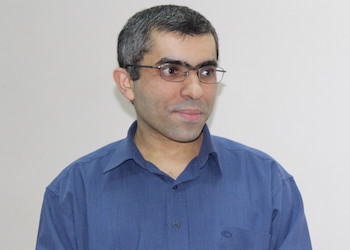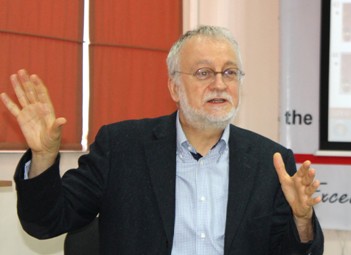On Thursday, May 14th, ISET hosted Helena Schweiger, Senior Economist in the Office of the Chief Economist at the EBRD, London. Ms. Schweiger presented her recent paper “The impact of armed conflict on firms’ performance and perceptions”, co-authored with Carly Petracco. This study explores the short-run impact of August 2008 conflict between Georgia and Russia on firms’ performance and their perceptions of the business environment.
Authors used the Business Environment and Enterprise Performance (BEEP) Survey data before and nine months after this armed conflict. The difference-in-differences estimates suggest that despite the short duration, armed conflict had a significant and negative impact on share of exports in sales and employment for at least a subset of firms.
On Thursday, April 16th, Muhammad Asali, ISET’s resident faculty member, presented his paper, named “Compulsory Military Service and Future Earnings: Evidence from a Quasi Experiment” to the ISET community.
Military service can have either positive, negative or no effect on future earnings of the former military servants. On the one hand, military service keeps people out of the labor market and therefore, harms their labor market skills, resulting in lower wages afterwards.
On the other hand, it might help acquire some new skills (e.g. discipline) which are needed in the labor market and therefore, benefit the former military servants in terms of earnings. There is little consensus in the literature about this relationship.
On Tuesday, April 7th, ISET hosted Professor Giorgio Brunello from the University of Padova. Prof. Brunello presented his recent paper titled "Pappa Ante Portas: The Retired Husband Syndrome in Japan”, that he collaborated with his colleague Professor Marco Bertoni.
Professor Brunello attempted to show the relationship between a husband’s retirement and mental health (stress) of his wife by using an econometric analysis. As explained, the paper was prepared based on Japanese micro data and the exogenous variation generated by the 2006 revision of the Japanese Elderly Employment Stabilization Law, which mandated employers to guarantee continuous employment between mandatory retirement age and full pension eligibility age.













